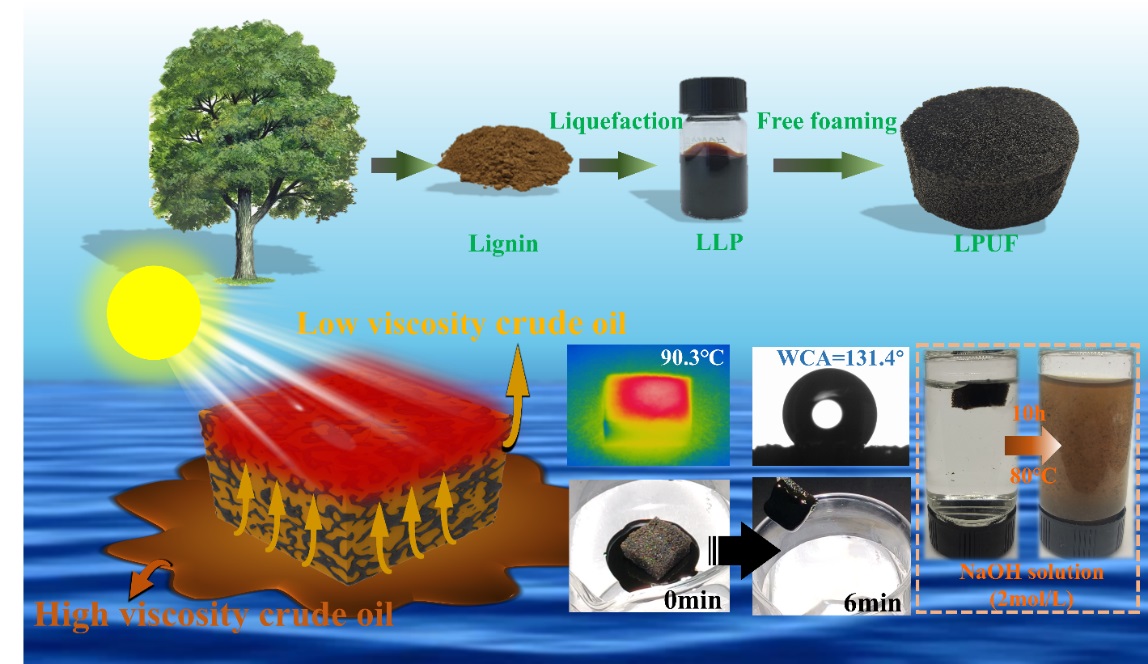A research group led by Prof. ZHU Jin at the Ningbo Institute of Materials Technology and Engineering (NIMTE) of the Chinese Academy of Sciences (CAS), has synthesized a high-efficiency carbon nanotube (CNT) modified lignin-based polyurethane adsorbent for crude oil spill remediation, in cooperation with Prof. CHEN Tao’ group at NIMTE and Prof. YAN Ning’s group at the University of Toronto (U of T). The study was published in Chemical Engineering Journal.
In recent years, the leakage of crude oil or organic chemicals has led to economic losses, petrochemical resource waste and severe environmental pollution, posing great threats to the marine ecosystem and human health. However, existing methods for crude oil cleanup are unable to combine excellent remediation performance with environmental protection.
Researchers at NIMTE employed the photothermal effect triggered by sunlight as the energy source to heat the heavy oil components, thus significantly reducing their inherent high viscosities to achieve a fast and efficient crude oil cleanup.
Through a simple polyurethane foaming process, researchers prepared lignin-based polyurethane foams. As a photothermal sorbent, the prepared polyurethane foam was doped with carbon nanotubes (CNTs) and showed excellent sunlight absorption of 97% for heavy oil with their surface temperature even exceeding 90 ℃ after 500 s of exposure under one sunlight. Besides, the modified foams adsorbed more than six times of its weight of crude oil within 6 min under one sun illumination.
In addition, the lignin-based foam adsorbents were degradable in alkaline environments with the degradation efficiency reaching 88.03% and the degradation rate of 6.25 mg/h in 2 mol/L NaOH aqueous solution at 80 ℃ for 10 h. Meanwhile, CNTs can be recovered from the same condition.
This work has not only provided an efficient and eco-friendly approach for heavy crude oil spill remediation and recovery, but also shed light on the high-value utilization of dark-colored bio-based polymers.
The study was supported by the National Key Research and Development Program of China (No. 2017YFE0102300), the National Natural Science Foundation of China (No. 51503128), Natural Science Foundation of Ningbo (No. 2019A610147) Program, Public Welfare Science and Technology Projects of Ningbo (No. 202002N3127), and China Scholarship Council (No. 201904910034).

Fig. The lignin-based polyurethane adsorbent for efficient crude oil cleanup (Image by NIMTE)
Contact
CHEN Jing
Ningbo Institute of Materials Technology and Engineering
E-mail: chenjing@nimte.ac.cn

